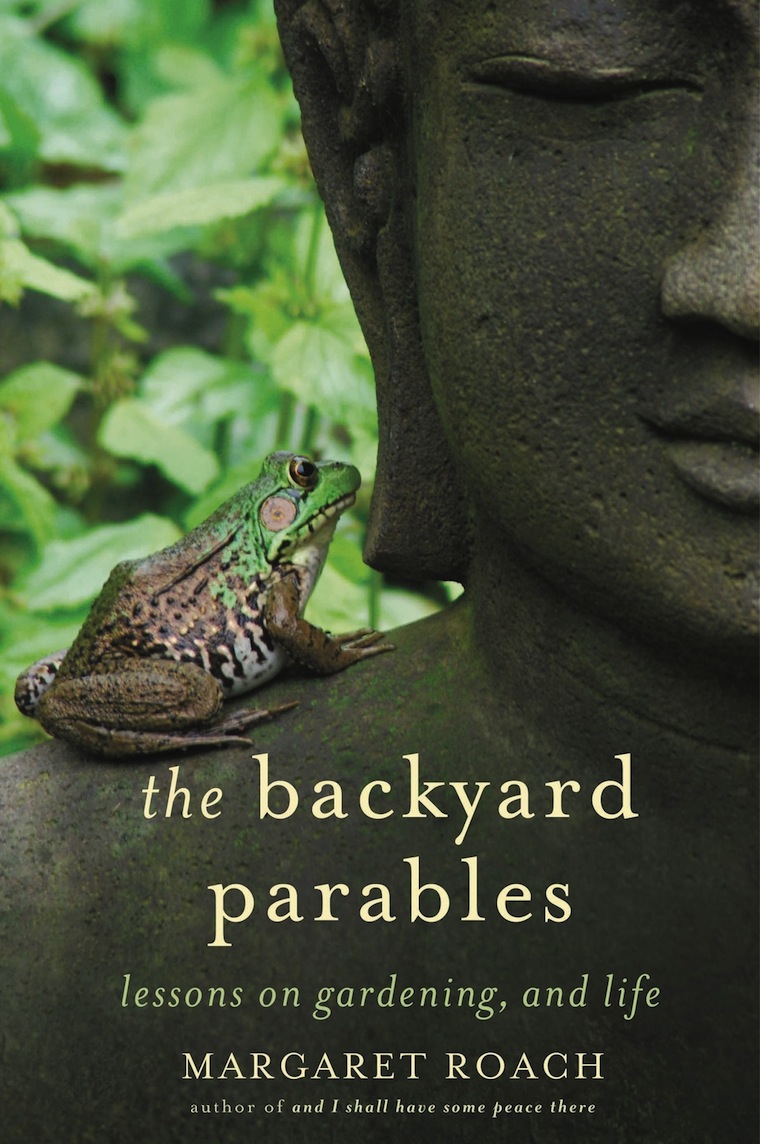Its cover called to me quietly – a gentle nudge of whimsy, like a frog whispering into a Buddha’s ear – only not just like, it actually was a frog whispering into the ear of a Buddha statue. The title whispered too, in a wish and a prayer – ‘The Backyard Parables’ – as if all the world’s wisdom was right in my very own backyard all along, Wizard of Oz-style. Anything that combined gardening and literature, two of my greatest passions, could only be food for the soul. One of the very first books that I learned to love was ‘Country Flowers’ by Lee Bailey. A birthday gift given to me when I turned ten at the end of August, it crept into my consciousness a few months later, as I struggled to locate a spring within that winter, and found one in the pages of a book. In many respects, that book changed my life.
At the closing of his introduction, Mr. Bailey wrote, “One last thing: like most people, I wish I could more often be the person I sometimes am – and I am most often that person in the garden. So in many ways this books represents the best of me.”
Though only ten at the time, I knew exactly what he meant. I told him so in a hand-written fan letter too, on amateurish, lined notebook paper, in what no doubt looked like childish scrawl, and all the more believable because of it. He wrote back to me, indicating his sweet surprise at how young I was starting out in the garden. It fostered a passion both for gardening and writing that subsists to this day.
I’m brought back to that moment because the latest book I read, the aforementioned ‘The Backyard Parables’ by Margaret Roach, has cast a similar spell, and awakened a love for the garden that was, in recent years, weakened by more mundane concerns and worldly living, but which I am working to carve a space for, in honor of what matters, or at least what should matter. I also want to recommend ‘The Backyard Parables’ not solely to those who love plants and good writing, but to anyone looking for a decent journey. In the span of a seasonal year, Ms. Roach proves that gardening offers lessons of life far more resonant than any centuries-old tales, and does so in ways often more moving. With some clever asides both sly and practical, she imparts knowledge while winking at anyone who’s faced similar struggles.
There is a bit of an underlying melancholy to the work at hand, surely one of the reasons I loved it so. Gardens do not live forever, and a single garden can die a million deaths. In just one season, there can be life, death, and re-birth, and where else but the garden can one see that in action so clearly? Confronting such big issues can leave one feeling ambivalent at best. The garden knows that. The gardener has only to listen.
Back to Blog
